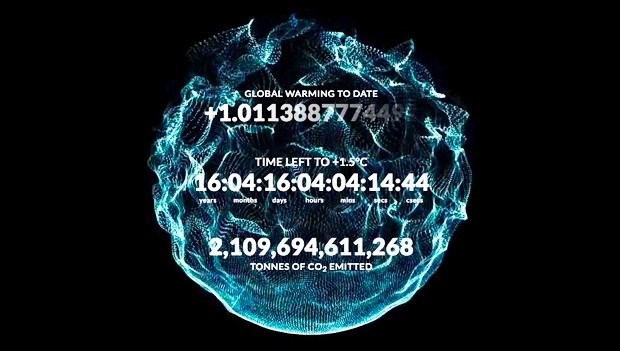News release
Time is not on our side in the race against climate change

Montreal, November 22, 2017 - The latest findings of a global team of climate researchers including Damon Matthews, director of the Concordia Climate Science, Impacts and Mitigation Studies Lab indicate the human influence on global warming in 2017 has exceeded pre-industrial levels by more than 1°C and is rising faster than ever, leaving little time to achieve the goals of the Paris Climate Agreement.
Matthews, a professor in Concordia’s Department of Geography Planning and Environment co-authored a paper in the journal Nature Scientific Reports, led by researchers at Oxford University. The research results were presented at last week’s United Nations Framework Convention on Climate Change conference in Bonn.
“This new index shows the effect of greenhouse emissions from fossil fuels, industry and land use change, isolated from temporary fluctuations in global temperature due volcanic eruptions or natural events like El Niňo,” explains Matthews. “This new data is a key measure used in our updated Climate Clock, to provide a stark warning of the time we have left before we cross the threshold of 1.5 °C warming. This is the point where we move into climate territory that becomes increasingly marked by dangerous and irreversible impacts.”
Matthews is co-creator of the multi-media Climate Clock, projected most recently at the Bonn climate conference. It also incorporates the latest projections of the Global Carbon Project that warn this year’s carbon dioxide emissions are likely to hit a record increase of 2% above 2016 emissions, after remaining relatively stable for the previous three years.
“This should serve as a wake-up call that we are not making progress fast enough to decrease our use of fossil fuels and the resulting greenhouse gas emissions” Matthews adds. “The latest climate and emissions data has forced us to set the clock’s 1.5°C date about half a year closer, to just over 15 years from now.”
Matthews is particularly dismayed the recent projections indicate greenhouse gas emissions in Canada haven’t decreased significantly over the past decade. “Many countries have already turned the corner and are on a downward trajectory of emissions; here in Canada we need to step up efforts to ensure that we are on the forefront of the coming global energy transition.”
Source
© Concordia University
